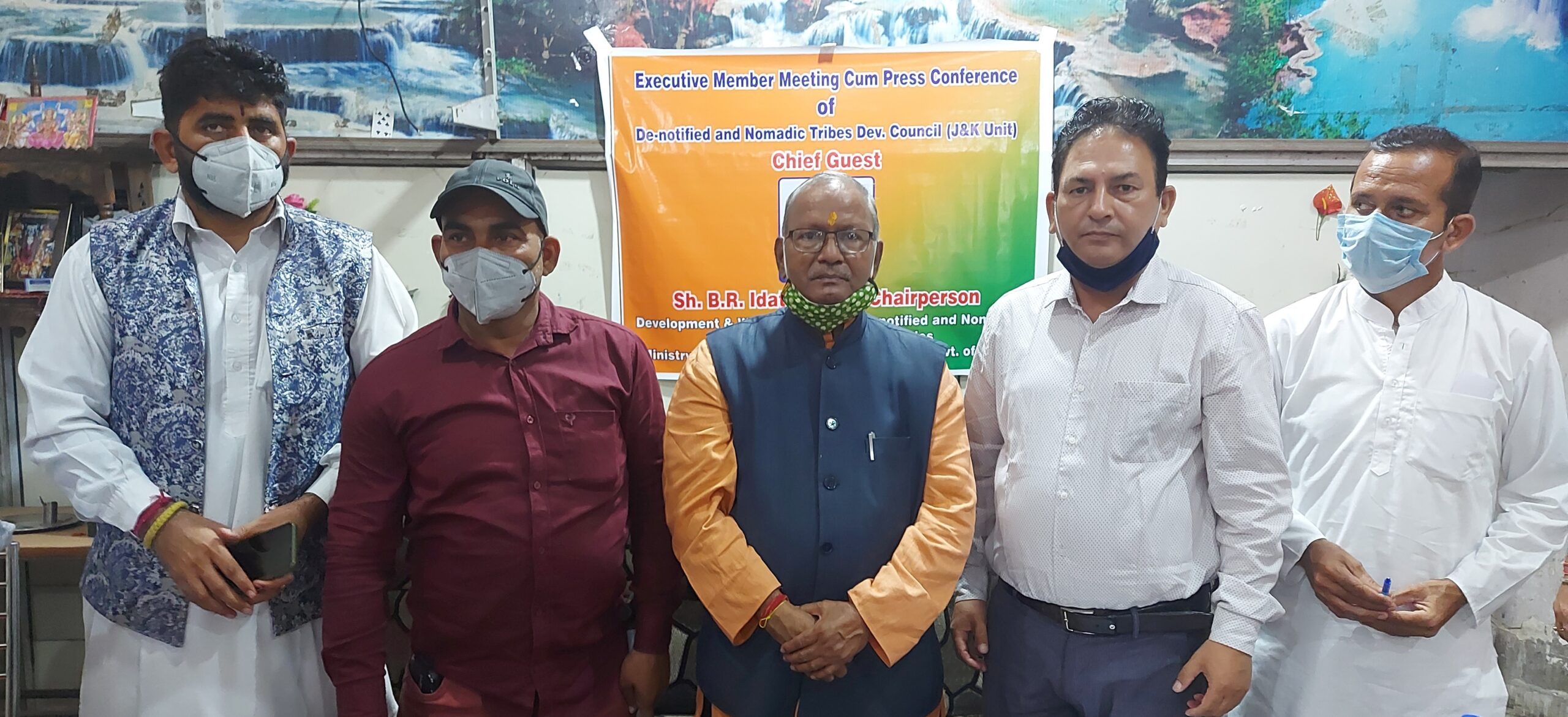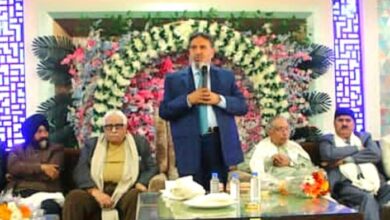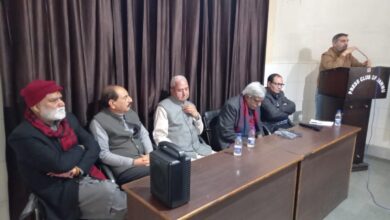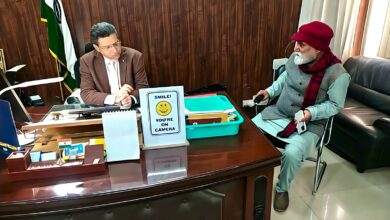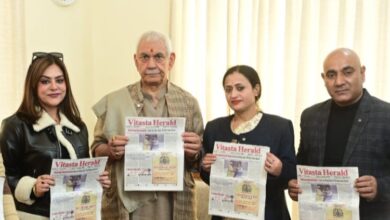Gujjar delegation meet Chairperson Nomadic Tribes Board , highlight demands
Jammu, July 14, 2021: A delegation of prominent leaders of Gujjar and Bakarwal communalities led by noted tribal researcher Dr. Javaid Rahi today met Bhinko Ramji Ibate, Chairperson , and other executive members, Development and Welfare Board for De-notified, Nomadic and Semi-Nomadic communities working under the Ministry of Social Justice and Empowerment, Government of India and discussed the issues being faced by Gujjars and Bakarwals –main nomadic groups of Jammu and Kashmir.
The National board is on a three -day visit to Jammu to listen to the issues of nomadic communities. The board was established in 2019 to assess and identify gaps /issues in accessing existing programmes and entitlements and to collaborate with Ministries/implementing agencies to ensure that ongoing programmes meet the special requirements of De-notified, Nomadic and Semi-Nomadic Communities.
The delegation discussed socio-cultural, economic concerns , educational issues besides rehabilitation of tribes of Jammu and Kashmir.
The delegation demanded that the board initiate a housing plan, eradication of illiteracy, and poverty schemes in Jammu and Kashmir for nomadic tribes especially in Gujjars Bakarwals.
They informed that Gujjars and Bakerwals together constitute more than 85 percent of tribal population of Jammu and Kashmir and demanded steps for educational development, due share recruitment and promotions in government jobs, Admissions in educational/ professional institutions, steps for socio-economic development besides political representation.
The other demands projected through a memorandum include implementation of the Conservation Act-1980 and the Forest Rights Act-2006 to rehabilitate nomads, forest dwellers and recognize habitation of ‘Forest Villages’ of J and K on the prototype of other states and UTs, and rehabilitation of all those members of nomadic tribes who are landless or living on non-forest lands.


